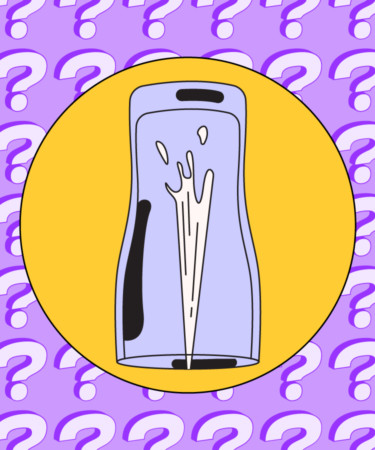Those who frequent craft beer bars will often see their bartender (or, in this case, beertender) rinsing glasses with water before filling them with patrons’ draft brews of choice. While it may appear to be a simple practice of hygiene, the act of rinsing a beer glass before pouring serves a multitude of purposes.
To discover why beertenders at top breweries and bars always spray their glasses, we asked Dan Lamonaca, owner and proprietor of NYC-based beer bar Beer Karma, for his insight.
First, Lamonaca stresses that, while rinsing a glass may contribute to a more hygienic drinking experience, it should never be a substitute for proper washing prior to service. “Rinsing the glass is an important last step to service but completely irrelevant if the glass being rinsed isn’t already beer-clean,” he says.
If not a replacement for scrubbing your glassware, then, what is the point of rinsing beer glasses? Lamonaca says there are three main reasons to always spray before serving. “The first is it cools the glass down a little bit,” he says. After glasses come out of the dishwasher and are put away, they may still be warm to the touch, which could elevate the temperature of a beer once it’s poured. By rinsing with chilled water beforehand, this potential issue is avoided.
The second reason, Lamonaca says, is that “it will rinse out any residual soap that might be in the glassware.” Plus, when glasses sit on shelves for extended periods of time, they can often collect dust — a problem quickly alleviated by a quick splash of water.
Lastly, rinsing a glass helps with the overall texture of a draft pour, as the water creates a slippery surface, minimizing friction and surface tension. This creates a smoother, less foamy pour.
Unsure whether your beertender skipped a step? There are some surefire signs to tell if your beer was poured into an unrinsed glass. “You could potentially get an extra foamy pour, which more often is an issue for the bar, as they’re going to have to dump some beer out to get you the right pour,” Lamonaca says. “Or, if there’s soap or something else on the side of the glass, there will be bubbles sticking to the glass, which shows that the glass is still a little bit dirty.”
While some drinkers may hesitate to rinse their glasses for fear of watering down their beverage, Lamonaca assures that the practice has minimal impact on flavor. “There’s always that one jabroni that’s like, ‘Don’t put water in my glass,’’” he says. “But no, there is no impact to taste by having a very, very negligible amount of water in the glass before you pour a beer.”
Glass rinsing is not just a practice meant for beertenders. Before pouring from a can, bottle, or growler into a glass, even at home, beer consumers can and should rinse with water. While most bars have star sinks, or glass rinsers — made for spraying glasses turned upside down — a simple rinse in the sink will do the trick. “I just literally run chilled water through it for a second or two,” Lamonaca says, adding that star sinks are more about convenience than anything.
